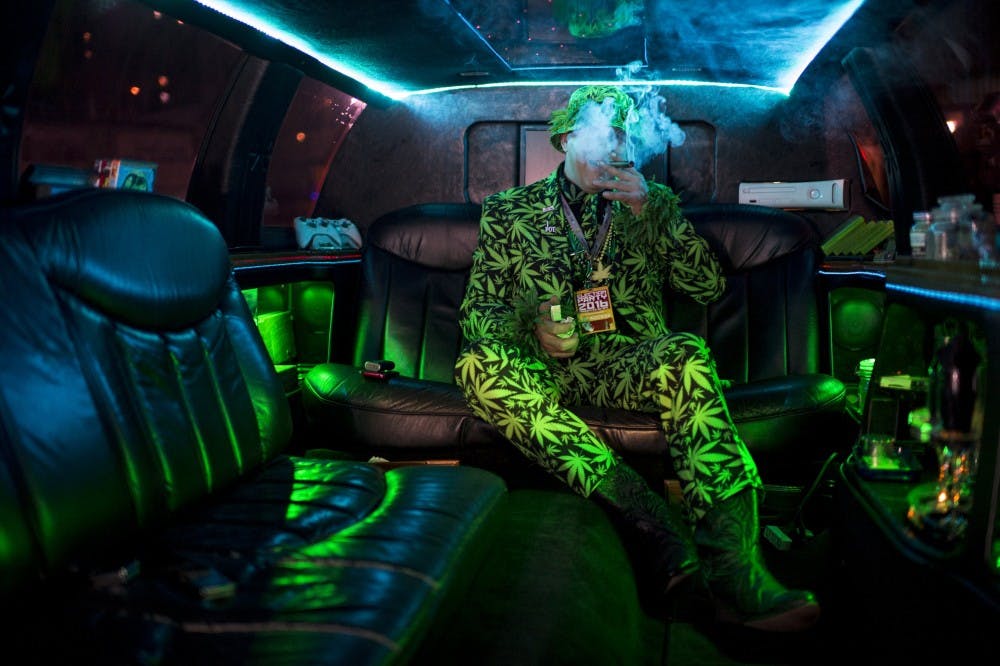In recent years, states all over the country have passed legislation legalizing recreational marijuana, and more could be on the way. With marijuana starting to become a mainstream commercial product, it seems only natural for it to casually seep into the culture in a way that makes it seem less taboo or dangerous.
Networks have started realizing that there is a market for quality programming that dives into the world of marijuana. Stoner comedies like “Cheech & Chong” no longer paint an accurate portrait of how marijuana affects people’s daily lives, but television has slowly adapted to the times by showing marijuana and its consumers as fairly and honestly as possible.
In 2005, “Weeds” began its eight-season run and was one of the first shows where the plot and characters were closely associated with marijuana. Labeled as a comedy, “Weeds” followed a widow who resorts to dealing marijuana illegally. The show’s main character becomes immersed in the criminal underworld, money laundering and prison.
It makes sense to explore the dangers of selling marijuana illegally even if its main goal is to be funny. Although there is still illegal marijuana trade happening in the country, TV has documented the changes that have occurred in policy and public opinion as marijuana becomes more widely accepted.
The channel “Viceland” has made a name for itself by broadcasting documentary-style shows geared toward a younger audience. It has countless shows based off long-form journalism on a variety of subjects such as cooking, sex and, yes, marijuana. The show “Weediquette” follows host Krishna Andavolu as he travels the country and beyond to document the world of medicinal and recreational marijuana as it stands today.
For three seasons, “Weediquette” has dived deep into many issues that are constantly associated with marijuana. He talks to all sides of the issue which include users, dealers, marijuana farmers, business owners, parents and law enforcement in order to get a better handle of this ever-changing issue. In one of the online episodes, Andavolu interviewed and smoked with the president of Uruguay at the time, Jose Mujica. Even though Andavolu has a bias towards being pro-marijuana, he does a good job of giving an objective viewpoint of the matter, so viewers are able to learn about the world of marijuana and not get a lecture or feel like they are being peer pressured into it.
In terms of scripted TV, “High Maintenance” is probably the most realistic depiction of how marijuana is used. Created by ex-husband and wife team Ben Sinclair and Katja Blichfeld, “High Maintenance” follows The Guy, played by Sinclair, an unnamed marijuana dealer who delivers to an eclectic group of people all across New York City. The show’s subtle storytelling has the same level of irreverence as a Richard Linklater or Noah Baumbach film. The Guy is in each episode for varying amounts of time, so the real stars are those he delivers to and the people they come in contact with.
In “High Maintenance,” marijuana is only a MacGuffin that moves the story along; the show is really about how people of different ages, races, ethnicities, economic backgrounds and personalities live. Sinclair and Blichfeld have enough confidence in the viewer to know what not to say and what to show. A show about a pot dealer maybe a good way to attract certain viewers, but it can surprise anyone how much they can relate to what is going on with the characters in “High Maintenance,” regardless of whether the viewer smokes or not.
“High Maintenance” and “Weediquette” are just two examples of how marijuana has started to seep into TV and pop culture. As people’s opinions change about the drug, the better chance these new kind of voices have of being heard — and the more open minds will become.

